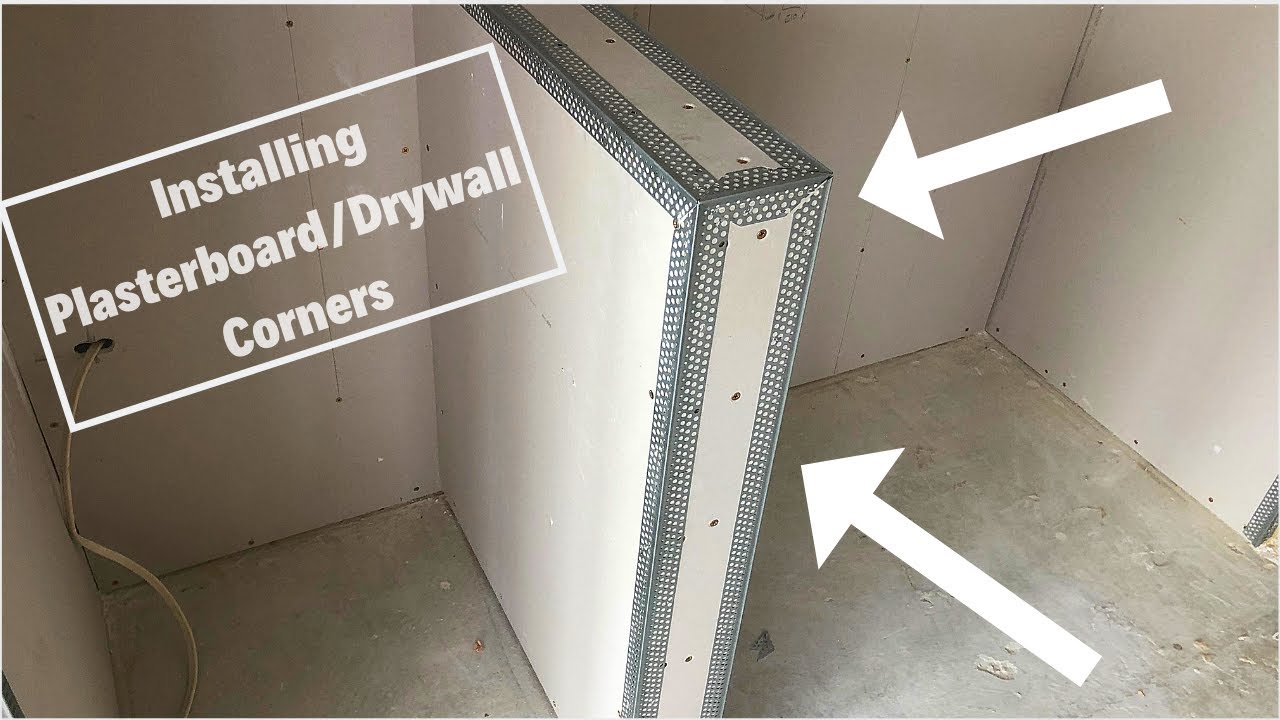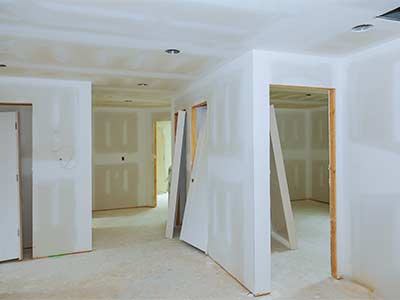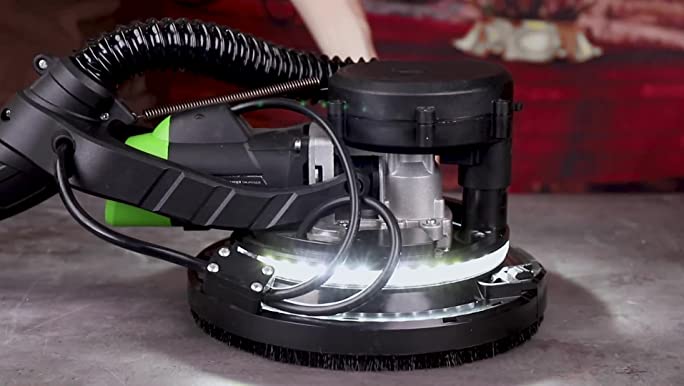
Sanding drywall can prove to be quite messy. Sanding can produce dust. Dust can travel through the airways and cause respiratory issues. There are some ways to reduce the amount dust produced by sanding. Regardless of how you sand, make sure to use proper safety equipment.
Wearing a hat and a respirator is always a good idea. This will keep dust from entering your eyes and hair and protect you against long-term symptoms like asthma. You should also wear glasses to protect you vision.
Another way to reduce dust production is to use a sanding pad. These sponges have been specially made to give a smooth finish and minimize dust production. They offer a safer alternative than using a machine sanding.

Another method for sanding drywall can be used is dry sanding. Dry sanding produces less dust than wet sanding, which is ideal for covering larger areas. If you plan to paint over the work, extra dust can cause problems. Before you paint, be sure to thoroughly sand the wall. If you do choose to sand drywall using a sanding pad, ensure that you rinse it with clean water at the end of each session.
It is common to think that drywall sanding requires a lot more dust than it actually is. However, you can easily control how much dust is generated during sanding. By following the steps below, you will be able to complete your sanding project without having to worry about dust.
You must first ensure that the room is properly ventilated. To do this, seal the vents and doorways. For dust collection, place a piece of plastic over the area that you are sanding.
When sanding drywall, it is important to wear a pair of safety glasses to shield your eyes. To prevent dust from entering your eyes or hair, you should wear a respirator and a hat. You can also protect your lungs by using a mask on your face.

Also, you should make sure that the sanding sponge is immersed in warm water before you start. You should not apply too much pressure to a wet sponge. Adding too much pressure can lead to craters and holes.
Lastly, use a scrubbing brush to remove any excess sandpaper from your work. If you choose to sand drywall with a dry sanding method, you should also be sure to use a scrubbing brush to clean the surface of your sanding paper. To remove any dust or dirt, you should clean up the work area using a wet cloth.
Although wet sanding joint compounds is slower than traditional sanding it can still be an efficient way to reduce the dust production. An orbital sander may be a better option depending on the size and complexity of your project. An orbital tool is lightweight and can be used quickly.
FAQ
Which room should I renovate first?
The kitchen is the heart of any home. It's where you spend most of your time eating, cooking, entertaining, and relaxing. You can make your kitchen more functional and appealing by using these tips!
Bathrooms are an important part any home. It is a place where you can feel at ease and privacy as you perform daily tasks such as brushing teeth, bathing, shaving, and getting ready for sleep. This will make these rooms more functional and beautiful.
Should I hire an architect or builder?
You may find it easier to hire someone else to complete your renovations if you own the home. If you're looking to purchase a home, an architect or builder can help you achieve your goals.
How Much Does it Cost to Renovate a House?
Cost of renovations depends on the material used, how large the job is and how complex it is. Some materials, like wood, need special tools like saws and drilling while others, like steel require no additional tools. The cost of renovations will vary depending on whether your contractor does all the work or you do it yourself.
Home improvement projects cost on average $1,000 to $10,000. The total cost for a home renovation project would be $5,000 to $25,000 if you hire professionals. If you hire professionals, the cost would be between $5,000 and $25,000. However, if the task is done entirely by yourself, the cost could rise to as high as $100,000.
You should know that there are many factors which determine the final cost of renovation. These include the material used (e.g. Brick vs. concrete, the project's size, the number and duration of workers, etc. These are all important factors to consider when estimating renovation costs.
What time does it take to finish a home remodel?
It all depends upon the size of your project and how much time it takes. The average homeowner spends three to six hours each week working on the project.
Statistics
- A final payment of, say, 5% to 10% will be due when the space is livable and usable (your contract probably will say "substantial completion"). (kiplinger.com)
- Design-builders may ask for a down payment of up to 25% or 33% of the job cost, says the NARI. (kiplinger.com)
- According to the National Association of the Remodeling Industry's 2019 remodeling impact report , realtors estimate that homeowners can recover 59% of the cost of a complete kitchen renovation if they sell their home. (bhg.com)
- Most lenders will lend you up to 75% or 80% of the appraised value of your home, but some will go higher. (kiplinger.com)
- Rather, allot 10% to 15% for a contingency fund to pay for unexpected construction issues. (kiplinger.com)
External Links
How To
5 Things You MUST Know Before Starting Your Home Renovation
-
This is a big undertaking. If you are planning to do major home improvements like renovating your bathroom or building new houses, you will likely need help. You might reconsider if you're not confident enough to handle such a huge task on your own. It could take up a lot of your time and money, and you won't get any real benefits from it. Instead, why not hire someone who knows what they're doing to help out? They will help you save time and stress and still give you a beautiful home to live in.
-
What amount should I spend on a renovation project? - This one might seem obvious, but spending too much on a renovation project could actually make matters worse. The reason is because you'll probably find yourself having to pay back most of the costs at the end of the day. So if you've got a budget in mind, stick to it! A lack of a budget could mean that you end up spending a fortune and getting nothing in return.
-
Do I choose to hire professionals or DIY? - There's no right and wrong answer. We recommend hiring professional tradespeople, however, if you're able to afford them. They can give you sound advice about how to proceed with your project. They'll install your plumbing correctly, provide a warranty, and ensure everything goes according to plan. DIY projects often involve a lot trial and error. You'll learn a lot the hard way. You'll also have to deal with any problems that may arise throughout the process.
-
Are you able to afford it? - Do not underestimate how expensive a renovation project will cost. You might need to borrow money from family and friends to pay the bills. When you want to sell your existing property quickly after the renovations are complete, you will need to account for the price of selling it.
-
Where should I begin? There's no right or incorrect place when it comes down to where to start. But, we recommend you pick something you love to work on. It will motivate you to work harder and reduce procrastination. Avoid places that need a lot of attention. You shouldn't redecorate your living space if you are constantly cleaning up dirt and dust.